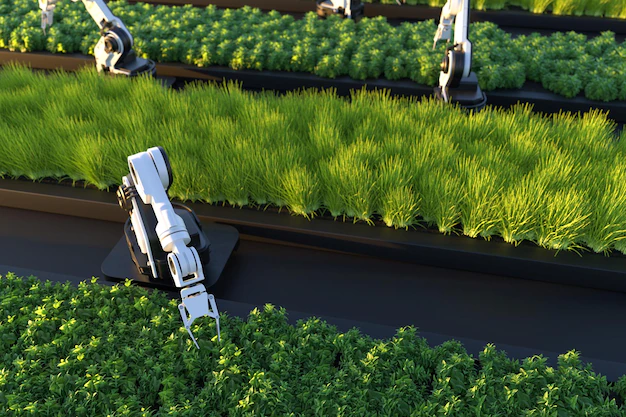Precision farming technologies and equipment offer numerous advantages that revolutionize the way farming is conducted. Some key advantages include:
- Increased Efficiency: Precision farming enables farmers to optimize their operations and make more efficient use of resources. By using precision technologies such as GPS, remote sensing, and data analytics, farmers can accurately assess and manage their fields’ specific needs, resulting in reduced wastage of water, fertilizers, pesticides, and energy. This leads to higher crop yields and improved resource utilization.
- Enhanced Crop Management: Precision farming technologies provide farmers with detailed and real-time information about their crops. Sensors, drones, and satellite imagery can be used to monitor plant health, soil moisture levels, nutrient deficiencies, and pest infestations. This data allows farmers to respond promptly and apply targeted treatments, optimizing crop growth and minimizing yield losses.
- Cost Savings: Precision farming can significantly reduce input costs. By precisely applying fertilizers, pesticides, and irrigation water only where and when needed, farmers can save money by minimizing excess usage. Additionally, the ability to monitor equipment performance and track fuel consumption allows for efficient machinery management, reducing operational costs.
- Environmental Sustainability: With precision farming, farmers can implement sustainable agricultural practices. By minimizing chemical usage and optimizing resource application, precision technologies help reduce environmental impact, such as water pollution and soil degradation. Efficient resource management also contributes to conservation efforts, reducing the overall carbon footprint of agricultural operations.
- Data-Driven Decision Making: Precision farming relies on data collection and analysis to inform decision making. Farmers can gather information from various sources, such as weather data, crop history, and soil composition, to make informed choices about planting, harvesting, and other management practices. Data-driven decision making enables farmers to optimize productivity, minimize risks, and adapt to changing conditions.
- Improved Crop Quality: By closely monitoring crop health and growth factors, precision farming allows for better control over crop quality. Farmers can adjust irrigation, nutrient supply, and other variables to meet specific quality standards demanded by consumers or market requirements. Enhanced crop quality increases marketability and profitability.
- Scalability and Flexibility: Precision farming technologies can be applied to both large-scale and small-scale farming operations. Whether it’s a vast field or a controlled environment like greenhouses or vertical farms, precision technologies can adapt to different farming systems. This scalability and flexibility make precision farming accessible to a wide range of farmers, promoting its adoption across diverse agricultural landscapes.
Precision farming technologies and equipment offer numerous advantages that improve agricultural productivity, reduce environmental impact, and support sustainable farming practices. By harnessing data and advanced technologies, farmers can optimize their operations, make informed decisions, and achieve better outcomes.
Join 'Farmers Mag' WhatsApp Channel
Get the latest Farming news and tips delivered straight to your WhatsApp
CLICK HERE TO JOIN






